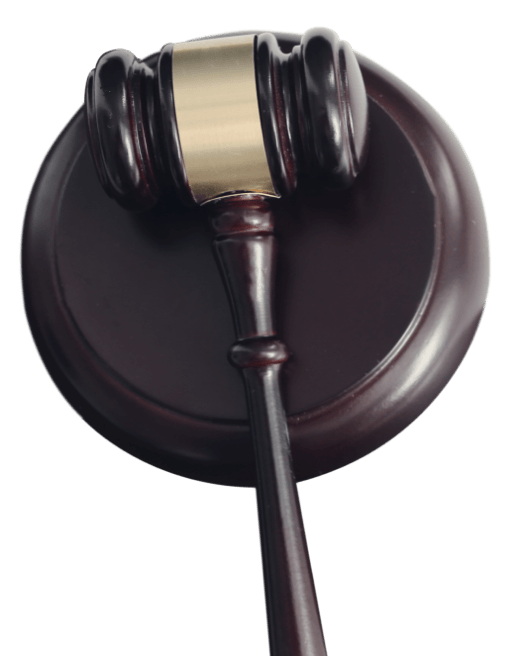What Happens When a Criminal Complaint is Filed Against You?
Written by Law Office of Rolando Cantú, reviewed by Rolando Cantú
What Happens When a Criminal Complaint is Filed Against You?
If there is a criminal complaint filed against you, numerous legal processes follow that usually start with an investigation which may then be followed by the arrests carried out by the police officers as well as court proceedings and trials in some instances. Knowing what to anticipate can play a very key role in preparing an effective legal defense. Below is a brief outline of the process, which will give you a detailed explanation that can help to pass through this difficult situation.
- What Is a Criminal Complaint?
- Understanding the Criminal Complaint Process
- Key Steps in the Process
- Expunction and Nondisclosure Orders
- Additional Considerations
- Conclusion
What Is a Criminal Complaint?
The term criminal complaint refers to a formal written document that includes the charges made against an individual who is suspected of committing crimes. This document constitutes the first process of criminal justice where law enforcement or a government agency states its own allegations.
Typically, a criminal complaint includes information such as:
- The name of the accused
- The date, time and also place of the alleged crime
- A short overview of the crime is what I need.
- The violated criminal statute or the law
- Supporting evidence or statements of the charges are both important.
To file criminal complaints a prosecutor, a police officer or even private citizen who has observed the alleged offense can do this. It is then a judge reviews and approves it after which he/she serves the accused person.
Related: What Does Pressing Charges Mean?
Understanding the Criminal Complaint Process
A criminal complaint initiates the formal judicial processes against an individual. Usually a district attorney files the complaint but it also can be a district attorney, an enforcement agency or an individual via the prosecutor’s office. Misdemeanors in Texas may be filed as complaints using the courts like Municipal Court, Community Courts or even the Justice of Peace Precinct based on type.
Criminal complaint procedure in Texas involves several agencies a lot. These include:
- The Texas Department of Criminal Justice - Community Justice Assistance Division
- Office of Court Administration - E-File Division
- Law enforcement offices involved in the arrest
- County Sheriff's Offices (if jail time is involved)
- Prosecuting Agencies like the County Attorney or District Attorney
- Clerk of the court where the complaint is filed
- Probation offices, community service coordinators, and other agencies for record-keeping
This complaint is essentially an affidavit made before a magistrate or district or county attorney, charging the commission of an offense (Texas Code of Criminal Procedure Article 15.04). When a criminal complaint is filed against you, it sets in motion a series of legal procedures, especially in the context of Texas law. Here's a brief overview of what typically happens:
Key Steps in the Process
- Filing of the Complaint: The complaint is the formal written document that accuses you of a criminal activity. It encompasses many aspects such as the supposed offense, evidence and also grounds for arrest.
- Notification and Response: When a grievance is lodged, you will receive the notification and be allowed to respond. This answer is very vital and usually needs a lawyer’s help.
- Investigation and Arrest: An investigation is to be conducted by the law enforcement agencies on the basis of a complaint. In case there is sufficient evidence, the police officer arrests the accused and takes them to a police station.
- Arraignment and Bail: Upon your apprehension, you will be arraigned before a magistrate or the judge for formal statements of the charges. You can be released on bail until the trial.
- Legal Representation: It is strongly recommended to consult a good lawyer. A lawyer who defends you can give advice, appear in court for you and also negotiate pleas or prepare a case to proceed.
- Court Proceedings: Based on the particular case, you will have preliminary hearings, and pretrial motions that lead to trial.
- Resolution: The case ends by means of the verdict that could be an acquittal, conviction or even a plea bargain.
It is very important to realize that this process can be easily modified in terms of certain conditions and also the type of crime being charged. To ensure that you understand how this system works and exercise your rights, it is recommended for one to seek legal representation from a criminal defense attorney.
You might also be interested: Do Arrests Show Up on Background Checks?
Expunction and Nondisclosure Orders
If you are found not guilty or your charges have been dropped, then expunction may be possible to wipe clean what’s left in the record. Under some circumstances, the Texas law also mandates non disclosure orders to ensure that your record is closed for public scrutiny. Accuracy in determining which agencies were involved in the arrest is very crucial when you seek this order.
Additional Considerations
- Seek Legal Advice: A criminal defense lawyer should always be consulted. They can assess your case, offer suggestions and also represent you.
- Rights and Responsibilities: Recognize your legal obligations and duties at every stage.
- Documentation: All legal documents, correspondence, police report and court recordings should also be accurately documented.
Conclusion
The criminal justice process is often very intricate and intimidating to traverse. In such a circumstance, it is advised that you hire an experienced attorney who will assist in the process and make sure your rights are not violated.
The Law Firm of Rolando Cantu is committed to delivering seasoned and also competent representation for criminal defense. Our team is dedicated to fighting for the very best result in your case. Contact us now for a free consultation, and let’s help you understand this difficult trying moment. Here we are to fight for your rights and to support you all the way!
This post is informative and should not be taken as a replacement for any legal advice. When dealing with criminal charges, it’s always best to consult an experienced attorney for guidance.














